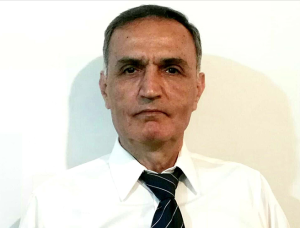 Iranian-Armenian pastor Anooshavan Avedian (62) has been released from Tehran’s Evin Prison following his acquittal at Branch 21 of the Appeal Court of Tehran. He was acquitted on the afternoon of 24 September and released that evening.
Iranian-Armenian pastor Anooshavan Avedian (62) has been released from Tehran’s Evin Prison following his acquittal at Branch 21 of the Appeal Court of Tehran. He was acquitted on the afternoon of 24 September and released that evening.
Anooshavan had served just over a year of his ten-year prison sentence for leading a house-church – a trial judge described his teaching of other Christians in his home as “propaganda contrary to and disturbing to the holy religion of Islam”.
The Supreme Court accepted Anooshavan’s latest petition for a retrial, lodged in April 2024, having previously denied all other petitions.
Middle East Concern reported that in speaking to friends after his release Anooshavan was excited and glad, saying that he and his family are doing fine.
In July, a joint submission to the UN Human Rights Council by Article 18, Christian Solidarity Worldwide, Middle East Concern and Open Doors called on the Iranian authorities to release Anooshavan immediately, among other Christian prisoners of conscience.
In October 2023, the UN Human Rights Committee called on Iran to “immediately release those imprisoned for exercising their right to freedom of religion or belief” and ensure they are provided with “adequate compensation”.
Background
Anooshavan was arrested in August 2020 when around thirty Ministry of Intelligence and Security agents raided his home in Tehran, where a group of 18 Christians including members of his family had gathered to pray and worship. He was detained for a month and was released after depositing property deeds to cover bail.
In April 2022 Anooshavan was sentenced to ten years in prison and in May his appeal was rejected. In August 2022 he was informed that the Supreme Court had rejected his appeal for a retrial.
In September 2023, after a long wait to be summoned, Anooshavan was visited at his home by Ministry of Intelligence officers who told him he must go to Evin Prison to begin serving his sentence.
Ethnic Armenian and Assyrian Christians in Iran like Anooshavan are permitted to meet for worship, but only if they use their own ethnic languages, not the national language (Persian or Farsi). The vast majority of Iranian Christians are converts from Islam and they are not permitted to meet for worship in Persian, nor to join Armenian and Assyrian churches. They have no option but to meet for worship in secret house churches, constantly at risk of discovery and raids.
Read Anooshavan’s Prisoner Profile.
(Article 18, Middle East Concern)
Photo: Article 18
